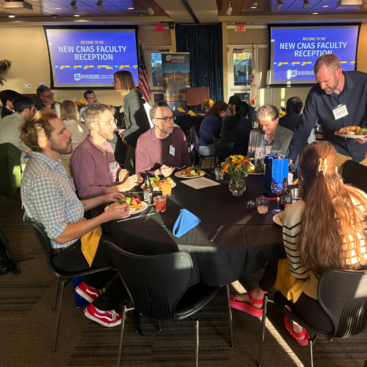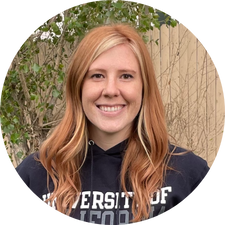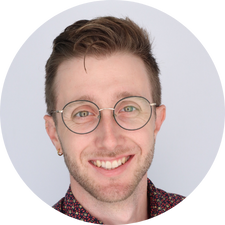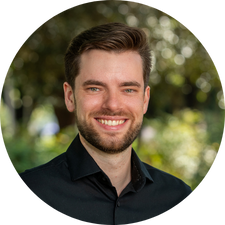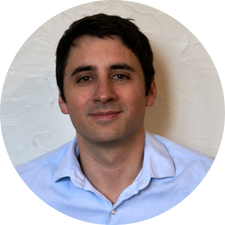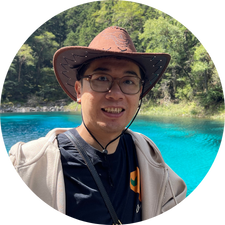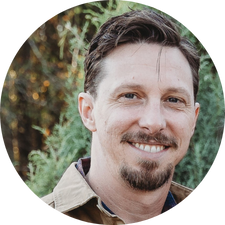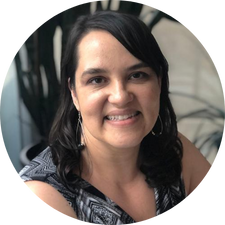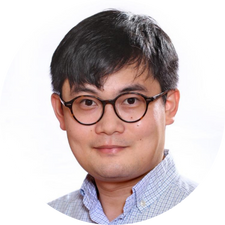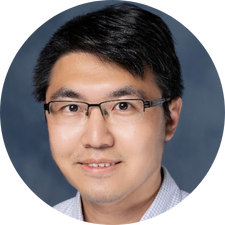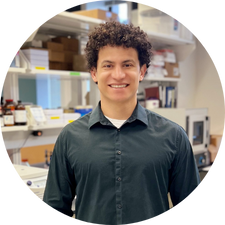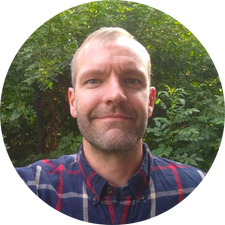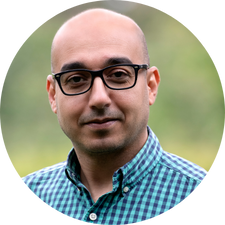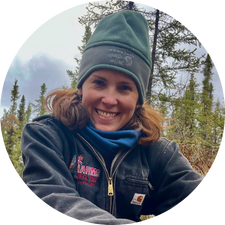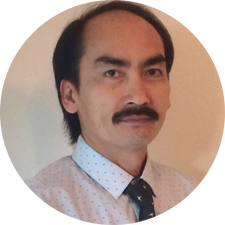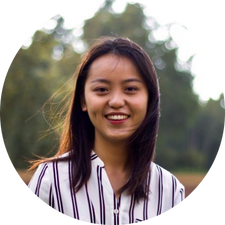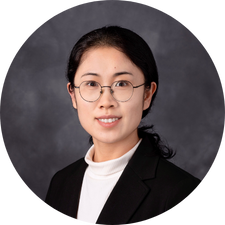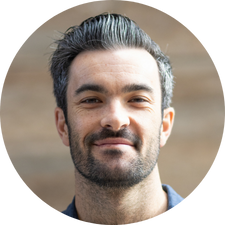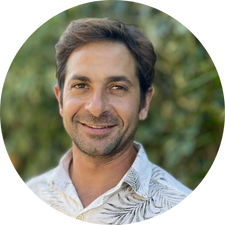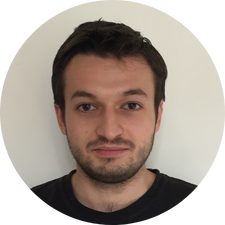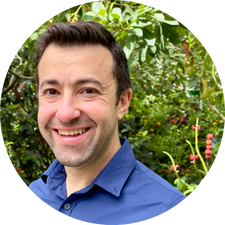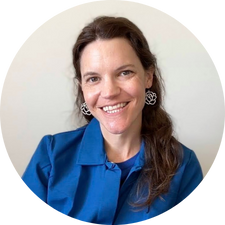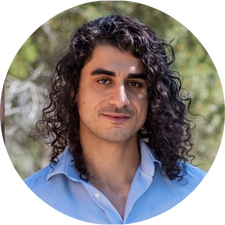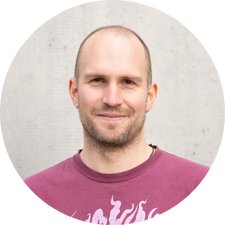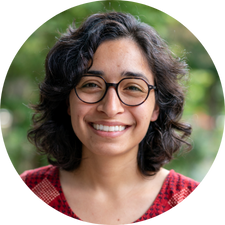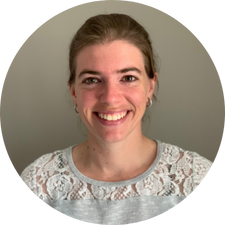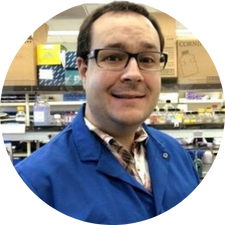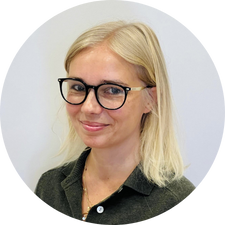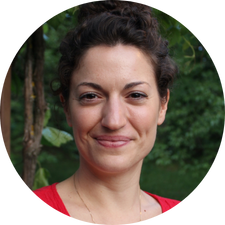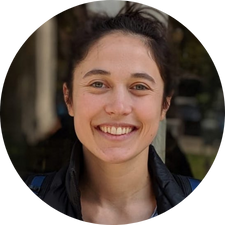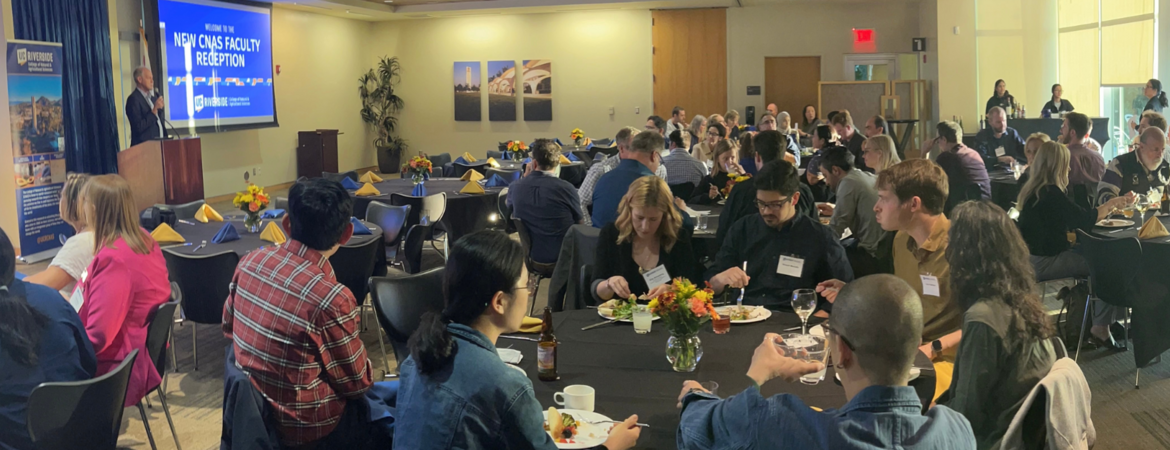
The UC Riverside College of Natural & Agricultural Sciences (CNAS) welcomed and celebrated 33 new faculty members for the 2024 academic year at the annual New Faculty Reception on October 29.
Peter Atkinson, CNAS Interim Dean, welcomed the new faculty members and their families at the Alumni & Visitors Center for a special dinner, where they were joined by current CNAS faculty. New faculty members were also introduced to the CNAS community by their respective department chairs.
"In your years here, you will find good friends, good colleagues...and lots of good advice," said Dr. Atkinson.
Elizabeth Watkins, Provost and Executive Vice Chancellor, also welcomed new faculty members and spoke about UC Riverside's collaborative spirit. "You are surrounded by some pretty amazing colleagues," said Dr. Watkins. "This is a very supportive college."
Dr. Watkins added, "It's exciting to me that every single department at CNAS has new faculty members!"
For Daniel Petras, who arrived on campus last January as a new Assistant Professor of Biochemistry, CNAS has already proven to be a wonderful academic community.
"UC Riverside has been a fantastic environment," said Dr. Petras. "It's very supportive. We got our lab up and running and have many collaborative projects throughout campus already. It's been a great experience so far!"
CNAS' new faculty members include:
Ellie Armstrong, Assistant Professor in the Department of Evolution, Ecology, and Organismal Biology, received her Ph.D. in Biology from Stanford University. Previously, she obtained an M.S. in Tropical Conservation Biology from the University of Hawaii, Hilo. Her research focuses on the evolution of large carnivores and the impacts of intense global change on these sensitive populations. Her lab will continue to use cutting-edge genomic tools to evaluate the genetic health of at-risk species, as well as the general impacts of captivity and long-term, small population size.
Eric Barefoot, Assistant Professor of Geology in the Department of Earth and Planetary Sciences, earned his doctorate in Earth Sciences from Rice University. He studies Earth’s landscapes and sedimentary rocks, broadly interested in how strata accumulate to create an archive of Earth’s history. He works in modern landscapes to better understand sediment transport processes and works in rock outcrops to learn about Earth’s ancient past. He uses hypotheses generated in the real world to develop computer models of sedimentary environments, and tests those models with scaled laboratory experiments.
Trevor Bolduc, Assistant Professor of Teaching in the Department of Chemistry, received his doctorate in organic chemistry from the University of British Columbia in Vancouver, Canada. During his graduate studies, he instructed second-year students in both major and non-major organic chemistry laboratory courses. His research interests include alternative grading to improve student proficiency and reduce equity gaps, and organic chemistry education app development in support of alternative modes to learning.
Bryan Brown, Assistant Professor of Computational Biology in the Department of Molecular, Cell, and Systems Biology, received his doctorate from Duke University and performed his postdoctoral training at Seattle Children's Hospital and the University of Washington. His group will focus on studying and manipulating interactions between endogenous bacteria and viruses and the immune system to improve health outcomes in women and infants.
Xu Cao, Assistant Professor of Teaching in the Department of Statistics, received his Ph.D. in Statistics from the University of North Carolina-Charlotte. Dr. Cao's research focuses on survival analysis. Dr. Cao is passionate about developing innovative teaching methods to engage students, and his research explores the applications of survival analysis in various fields, including healthcare.
Christopher Catano, Assistant Professor & Plant Ecologist in the Department of Botany and Plant Sciences, received his doctorate in Ecology & Evolutionary Biology at Washington University in St. Louis. He also was a Postdoctoral Fellow at Emory University and Michigan State University. Dr. Catano’s research seeks to understand how biodiversity and ecological communities respond to environmental change, and the consequences of these changes for ecosystem functioning and resilience. His research integrates approaches spanning experimental ecology, quantitative modeling, and remote sensing to both advance fundamental theory and scale up capacities to guide ecosystem restoration and conservation.
Laura Catano, Assistant Professor of Teaching, Department of Evolution, Ecology & Organismal Biology, received her doctorate at Florida International University. where she studied marine community ecology. Dr. Catano has worked in higher education teaching biology for over twelve years, most recently at Emory University in Atlanta, GA. She is interested in developing biology curricula with active-learning and learner-centered approaches that promote and retain diverse students in the field of science.
Sonali Chaturvedi, Assistant Professor of Virology in the Department of Microbiology & Plant Pathology, did her Ph.D. in virology at UC Riverside before joining J David Gladstone Institutes in San Francisco for postdoctoral research. Her group deciphers genetic circuits pivotal in determining viral fates with the mission to not only understand the architecture of the fate-dictating genetic circuits, but leverages these design principles to engineer indomitable therapies — therapies envisioned to outsmart viral evolution with a towering genetic barrier. With a particular intrigue in the shadowy realm of latency, oncogenesis, developmental disorders associated with DNA viruses and the transmission mechanics of pandemic potential RNA viruses, her group is resolute to dive deep, exploring, understanding, and innovating to make the next-generation medicine for clinically relevant viral pathogens.
Yuzhou Chen, Assistant Professor of Statistics in the Department of Statistics, served as an adjunct assistant professor in the Department of Computer and Information Sciences at Temple University and a Visiting Research Collaborator in Department of Electrical and Computer Engineering at Princeton University. Before that, Dr. Chen worked as a postdoctoral scholar in the Department of Electrical and Computer Engineering at Princeton University. Dr. Chen received his Ph.D. in Statistics from Southern Methodist University.
Steve Choi, Assistant Professor of Physics in the Department of Physics & Astronomy, received his doctorate in physics from Princeton University. Prior to joining UC Riverside, he was an NSF Postdoctoral Fellow at Cornell University. Choi’s research focuses on experimental and observational cosmology, particularly in the development of superconducting detectors for precise observations of the cosmic microwave background, the remnant radiation from the Big Bang. At UC Riverside, Choi plans to develop more sensitive astronomical instrumentation to address fundamental questions about our universe.
Wei-Chun Chou, Assistant Professor of Environmental Health in the Department of Environmental Sciences, received his Ph.D. from National Tsing Hua University and completed postdoctoral training at Kansas State University. His research focuses on computational modeling, particularly physiologically based pharmacokinetic (PBPK) models, machine learning, and artificial intelligence (AI) in environmental toxicology and human health. He has pioneered AI methods for predicting chemical toxicity and developed models for nanomedicine and protein interactions to enhance tumor delivery. Dr. Chou was awarded an NIH R03 Grant for his innovative research and serves on the Science Advisory Board (SAB) of the U.S. EPA. He has published over 65 peer-reviewed papers and is active in the Society of Toxicology.
Luciano Cosme, Assistant Professor in the Department of Entomology, earned a Ph.D. in Entomology from Texas A&M University in 2015. Before joining UCR, he spent nine years at Yale University as a postdoctoral associate and research scientist, conducting research on mosquitoes. His work focuses on the natural genetic variation of mosquito traits important for arbovirus transmission, photoperiodic diapause, and insecticide resistance. By exploring how genetic variation is generated and maintained in natural populations, he aims to develop innovative strategies for managing mosquito vectors and reducing the burden of mosquito-borne diseases.
Brian Duistermars, Assistant Professor of Teaching in the Department of Molecular, Cell & Systems Biology, grew up on a dairy farm in the Inland Empire and received his bachelor's degree in Molecular, Cell & Developmental Biology at UC Riverside. He then received his Ph.D. from UCLA studying fly flight and went on to a postdoc at Caltech studying fly aggression. Dr. Duistermars returns to UC Riverside after teaching at The Claremont Colleges for several years.
Ahmed El-Moghazy, Assistant Professor and Extension Specialist of Food Safety in the Department of Microbiology & Plant Pathology, received his doctorate in developing electrochemical biosensors for food safety applications from Alexandria University and University of Perpignan, France. Before joining UC Riverside, he was a postdoctoral scholar at UC Davis. He leads research and extension efforts to create a robust food system that meet the growing and safety demands for food in California. His research efforts focus on reducing food safety risks through developing innovative sensors for sample-to-answer monitoring potential biological and chemical food contaminants as well as developing light-induced antimicrobial matrices to control microbial contamination in food supply chains.
Tamara Harms, Associate Professor, Department of Environmental Sciences, is an ecosystem ecologist and biogeochemist interested in the effects of spatial heterogeneity and hydrologic flowpaths on elemental cycles. She has studied desert riparian zones and streams, urban ecosystems, and boreal and arctic catchments. Current foci include: biogeochemical indicators of ecosystem resilience; responses of carbon, nitrogen, and phosphorus cycles to permafrost thaw; and influences of fire and hydrologic regimes on desert streams.
Bao-Lam Huynh, Assistant Professor of Nematology in the Department of Nematology, earned his doctorate in plant science at the University of Adelaide, Australia. His research is focused on host plant resistance and crop breeding for nematode resistance. He believes strongly in the sustainability benefits of resistant crops; they reduce reliance on pesticides, thus contributing to cleaner air, cheaper production, safer food, and increased demand and consumption. His research covers from germplasm diversity analysis and selection, resistance phenotyping, genetic mapping, gene discovery, marker-assisted breeding, release of new varieties, to outreach activities to promote adoption.
Sunil Kenchanmane Raju, Assistant professor in the Department of Botany and Plant Sciences,earned his doctorate from the University of Nebraska-Lincoln and completed postdoc training at Michigan State University and New York University. His research focuses on understanding the evolution of environmental adaptation in crops by utilizing information from stress-adapted wild relatives through comparative epigenomics and single-cell omics. He is passionate about training and mentoring the next generation of plant scientists through his organizations, Plant Postdocs and Plant Grad, which provide resources and mentoring support to early-career scientists worldwide.
Siting Liu, Assistant Professor of Mathematics in the Department of Mathematics, earned her PhD in mathematics from UCLA. Liu's research focuses on mathematical modeling and computational techniques, particularly in mean-field games and mean-field control models. She develops efficient computational methods that leverage machine learning and mesh-based techniques to solve partial differential equations. Her work spans various applications in data science, machine learning, and engineering, aiming to provide advanced modeling tools and practical solutions to complex, real-world problems.
Xiaoqian Liu, Assistant Professor of Statistics in the Department of Statistics, spent two years as a postdoctoral fellow in the Department of Bioinformatics and Computational Biology at the University of Texas MD Anderson Cancer Center before joining UC Riverside. Xiaoqian received her Ph.D. in Statistics from North Carolina State University in 2022. Her research interests broadly encompass statistical machine learning, computational statistics and optimization, and their applications in bioinformatics and cancer biology, including mutation annotation, transcriptomic deconvolution, and tumor heterogeneity and evolution.
Samuel Mann, Assistant Professor of Inorganic Chemistry in the Department of Chemistry, received his B.S. in Chemistry from California Polytechnic University, San Luis Obispo. Sam received his Ph.D. in Chemistry from UC Irvine with Prof. Andy Borovik where he developed artificial Cu proteins to understand the effects of non-covalent interactions on synthetic metal complexes. He then expanded on his graduate work as an NIH Postdoctoral Fellow in the lab of Prof. Bill DeGrado at UC San Francisco. At UCSF he designed de novo protein scaffolds to tune of function of metalloporphyrins and photo-oxidants. In his independent career, Sam aims to merge (bio)inorganic chemical principles with protein design to construct new metalloproteins from scratch that help build structure-function relationships for natural metalloproteins and develop design principles for new-to-nature function.
Pedro Martinez, Assistant Professor in Soil Science & Pedaology in the Department of Environmental Sciences, received his doctorate in soil science at Oregon State University. He is a broadly trained soil scientist with an interest in applying fundamental knowledge to investigate soil genesis, landscape evolution, and soil records of past environments. He previously worked as a postdoctoral at the Jornada Experimental Range, USDA/ARS. He seeks to continue developing research and teaching activities focused on soil-landscape evolution models to unravel past and future Earth system reactions to changing environmental conditions.
Filippo Mazzoli, Assistant Professor of Mathematics in the Department of Mathematics, received his Ph.D. in Mathematics at the University of Luxembourg, after which he worked for three years at the University of Virginia as a Whyburn Research Associate and Lecturer. He spent the last academic year at the Max Planck Institute for Mathematics in the Sciences in Leipzig, Germany. Dr. Mazzoli is interested in geometric structures arising from representations of surface groups inside non-compact Lie groups, such as hyperbolic and anti-de Sitter 3-manifolds. The study of such objects often relies on tools from many different areas of mathematics, such as differential geometry, dynamical systems, and low dimensional topology, and finds applications in theoretical physics, for instance in general relativity and quantum field theory.
Jeffrey S. Meyer, Assistant Professor of Teaching in the Department of Mathematics, earned his doctorate in mathematics from the University of Michigan. Before coming to UC Riverside, he was faculty for many years at the University of Oklahoma and then at California State University, San Bernardino. Dr. Meyer’s mathematical research brings together tools from a broad collection of mathematical areas, such as geometry, linear algebra, and number theory to solve problems. Much of his recent work has been in spectral and systolic geometry. Parallel to Dr. Meyer’s mathematics is his research in mathematics education and his passion for teaching. He uses frameworks coming from cognitive psychology to understand student thinking within mathematics and uses these understandings to inform and enhance the courses he teaches.
Adam Norris, Assistant Professor of Biochemistry in the Department of Biochemistry, investigates how RNA splicing is regulated in unique ways in individual neurons. He is also a “professional” pianist and an amateur volleyball player. He grew up in Orange County and is excited to be back in SoCal after nearly 20 years of living in various other states.
Megan L. Norris, Assistant Professor of Biochemistry in the Department of Biochemistry, earned her doctorate in Biology from Harvard University. She completed her post-doctoral fellowship at the University of Texas Southwestern Medical Center, where she uncovered how subcellular RNA localization regulates downstream binding partner specificity of the encoded protein and the ability of cells to migrate. Dr. Norris’s group works to understand how RNA localization is established and maintained, specifically in cell protrusions, and how RNA localization affects healthy vertebrate development as well as diseases such as congenital birth defects and cancer.
Saverio Perri, Assistant Professor of Environmental Sciences in the Department of Environmental Sciences at UC Riverside, specializes in water-biota interactions in water-limited and salt-affected ecosystems. His research integrates physically-based modeling with observational systems to explore global land-use trends, salinity impacts, and ecohydrology. Dr. Perri has held postdoctoral fellowships at the Santa Fe Institute and Princeton University, and his work addresses the sustainability of ecosystems under climate stress, balancing food, water, and energy security. His interdisciplinary approach advances understanding of coupled human-natural systems and their resilience to environmental change.
Daniel Petras, Assistant Professor of Biochemistry in the Department of Biochemistry, earned his master’s degree in Biotechnology from the University of Applied Science Darmstadt and a Ph.D. in Biochemistry from the Technical University Berlin in 2016. After postdoctoral work at UC San Diego, focusing on environmental metabolomics, he founded the Functional Metabolomics Lab as an independent junior research group at the University of Tübingen in 2021. In 2024, he and his group moved to UC Riverside. His research centers on developing mass spectrometry-based techniques to study chemical interactions within microbial communities.
Crystal Reynaga, Assistant Professor in the Department of Evolution, Ecology, and Organismal Biology, received her doctorate in biomechanics at the University of California, Irvine. Her work investigates questions that lie at the intersection of musculoskeletal physiology, neuromechanics, and movement. Her research program aims to understand animal locomotion in complex environments by using integrative experimental approaches, such as biological materials testing and imaging. Her research spans across different levels of biological organization, from microscopy of collagen organization to exploring how tendons passively impact control in whole-body movements.
Elizabeth Rowen, Assistant Professor in the Department of Entomology, received her doctorate in Entomology from The Pennsylvania State University. She worked as an assistant professor in the Division of Plant and Soil Science at West Virginia University. Her work focuses on insect agroecology. She is specifically interested in the ways in which soil management practices like cover crops, tillage, and fertilization practices can influence insect pests and predators. She is also interested in how livestock management can affect nutrient cycling by arthropod decomposers (dung beetles!) in pastures and rangelands.
Jason Rothman, Assistant Professor of Teaching in Microbiology in the Department of Microbiology and Plant Pathology, earned his doctorate in microbiology at UC Riverside and undergraduate and master’s degrees at Cal Poly Pomona. Prior to returning to UC Riverside, he taught biology courses at Cal Poly Pomona and served as a postdoctoral fellow at UCI, studying the human oral microbiome and wastewater epidemiology. He researches microbial ecology in environmental and host-associated systems, and the impacts of active learning and mentorship on student motivation in microbiology and bioinformatics.
Emma Rova Danelius, Assistant Professor of Chemistry in the Department of Chemistry, received her doctorate in chemistry at the University of Gothenburg, Sweden. Before joining UC Riverside, she was a postdoctoral fellow at UCLA in the Department of Biological Chemistry. Her research is at the interface of chemistry and biology with a special focus on molecular structures and interactions. At UC Riverside, research in her group will aim to solve challenging structures of bioactive compounds beyond the traditional drug space, as well as their protein targets.
Meredith VanAcker, Assistant Professor of Disease Ecology in the Department of Evolution, Ecology and Organismal Biology, received her doctorate in ecology and evolution from Columbia University. Prior to joining UCR, VanAcker was a George E. Burch Postdoctoral Fellow under Smithsonian Institution's Global Health Program where she researched virus spillover risk at wildlife-livestock interfaces. Research in her group will integrate wildlife movement ecology, epidemiology, and community ecology to examine how animal hosts respond to global changes like urbanization and deforestation to impact vector-borne and zoonotic disease emergence.
Morgan Weiler, Assistant Professor of Teaching in the Department of Mathematics, received her doctorate in mathematics from UC Berkeley. Morgan's work focuses on leveraging symmetry to study the dynamics and embedding properties of low-dimensional symplectic manifolds. At UC Riverside, she plans to develop further computational techniques and to use Reeb dynamics to characterize three-dimensional manifolds.
View Photos from the Reception
